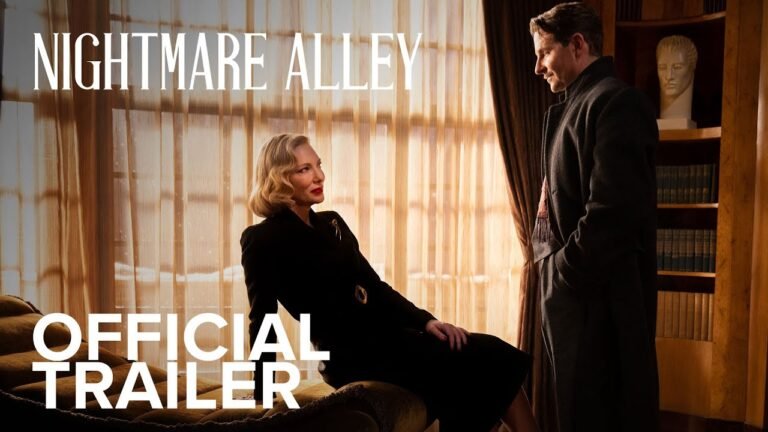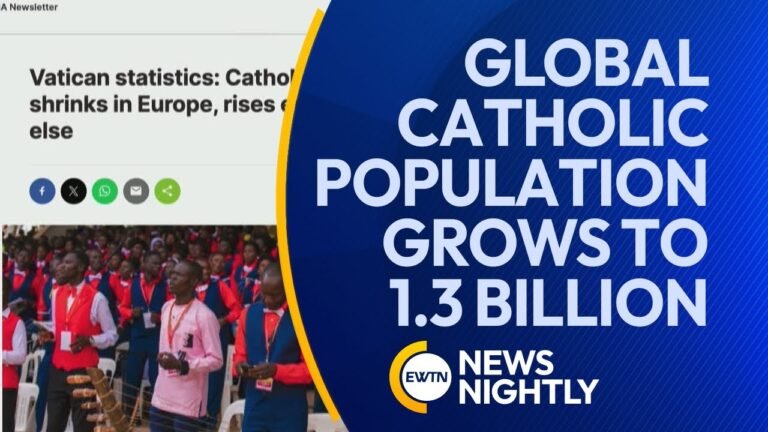The Legacy of Cardinal Dulles: Faith and Scholarship
Cardinal Dulles, a towering figure in modern Catholic theology, left an indelible mark on the Church and the broader world with his profound insights and unwavering commitment to faith. As a renowned theologian and influential author, he navigated complex theological issues with clarity and conviction, fostering dialogue between tradition and contemporary thought. His legacy continues to inspire both clergy and laity, making his contributions essential to understanding the evolving landscape of Catholicism today.
What legacy did Cardinal Dulles leave behind?
Cardinal Dulles left a legacy of theological scholarship, interfaith dialogue, and a commitment to the Church’s mission, influencing both clergy and laypeople worldwide.
What is Avery Dulles famous for?
Avery Cardinal Dulles, S.J., was a prominent theologian and scholar whose contributions to Catholic thought have left a lasting impact on the Church. Serving as the Laurence J. McGinley, S.J., Professor of Religion and Society at Fordham University from 1988 until his death in 2008, Dulles was widely respected for his insightful writings and teachings, which addressed contemporary issues within theology and society.
Notably, Dulles made history as the first American theologian who was not a bishop to be appointed to the College of Cardinals, a testament to his distinguished career and profound influence. His unique perspective and commitment to dialogue within the Church have inspired many, establishing him as a key figure in modern Catholicism and a bridge between faith and reason.
What led to Avery Dulles’ conversion?
Avery Dulles experienced a transformative moment that changed the course of his spiritual journey. On a rainy day, while walking along the Charles River, he noticed a tree beginning to blossom despite the dreary weather. This simple yet profound observation struck him deeply, leading to a powerful realization about the beauty and resilience of life, which he interpreted as a reflection of divine grace.
This moment of clarity diminished Dulles’s longstanding religious doubts and ignited a spark of faith within him. He found himself contemplating the nature of God, ultimately coming to believe in an all-good and omnipotent being. This shift in perspective marked a significant turning point in his life, as he began to embrace the tenets of theism with newfound conviction.
As Dulles’s faith deepened, it naturally led him toward conversion. He recognized that his experiences and reflections were guiding him toward a greater understanding of God and his own purpose in life. This journey not only transformed his personal beliefs but also shaped his future contributions to theology, allowing him to inspire others with his insights into faith and reason.
Was Avery Dulles a Catholic bishop?
Avery Dulles was a prominent figure in the Catholic Church, renowned for his theological contributions and scholarly work. After spending a year in Germany, he furthered his education at the Gregorian University in Rome, where he earned a doctorate in Sacred Theology in 1960. His academic pursuits laid the groundwork for a distinguished career in theology and ecclesiastical discourse.
In a significant milestone, Dulles was elevated to the rank of Cardinal on February 21, 2001, by Pope John Paul II. This honor was particularly notable as he became the first American-born theologian who had not been ordained as a bishop to receive such a title. His elevation to Cardinal underscored his impact on modern Catholic thought and the respect he garnered within the Church.
Throughout his life, Dulles remained dedicated to intellectual exploration and pastoral engagement, influencing both clergy and laypeople alike. His legacy is marked not only by his writings and teachings but also by the unique position he held as a Cardinal without the episcopal ordination, illustrating the diverse pathways within the Church’s hierarchy for those committed to faith and scholarship.
Bridging Theology and Reason
In an era where faith and intellect often seem at odds, the need for a harmonious dialogue between theology and reason has never been more pressing. This intersection invites us to explore profound questions of existence, purpose, and morality, urging believers and skeptics alike to engage in thoughtful discourse. By examining sacred texts through the lens of critical thinking, we can uncover deeper insights that enrich both spiritual understanding and rational inquiry, fostering a more inclusive worldview.
The quest to bridge theology and reason not only enhances individual belief systems but also nurtures a collective pursuit of truth. It encourages an environment where diverse perspectives are welcomed, promoting empathy and understanding among different faiths and philosophies. As we embark on this journey, we empower ourselves to confront life’s complexities with both heart and mind, paving the way for a more harmonious coexistence that honors our shared humanity.
A Life Devoted to Truth
In a world often clouded by misinformation and half-truths, a commitment to uncovering reality stands as a beacon of hope. Embracing transparency and integrity, individuals dedicated to the pursuit of truth strive to illuminate the shadows that obscure understanding. Their relentless quest not only enriches their own lives but also inspires others to seek clarity and wisdom in their own journeys. Through thoughtful inquiry and open dialogue, they challenge the status quo, fostering a culture of critical thinking that empowers communities to grow and evolve.
This devotion to truth is not merely an intellectual exercise; it is a profound moral imperative that shapes the fabric of society. By prioritizing honesty and authenticity, these truth-seekers cultivate trust and respect, forging connections that transcend superficial differences. Their influence encourages a collective awakening, urging others to question assumptions and embrace the complexities of life. In this shared pursuit, we find the potential for transformation, as each revelation brings us closer to a deeper understanding of ourselves and the world around us.
Insights from a Modern Theologian
In an age marked by rapid change and uncertainty, modern theologians offer profound insights that bridge ancient wisdom with contemporary challenges. They encourage us to explore the depths of faith while grappling with pressing social issues, emphasizing the relevance of spiritual principles in everyday life. By fostering dialogues that challenge conventional beliefs, these thinkers illuminate pathways toward understanding and compassion, inviting individuals to cultivate a deeper connection with their spirituality. Their work not only enriches personal faith journeys but also inspires communities to engage thoughtfully with the world, creating a tapestry of hope and resilience.
The Intersection of Belief and Knowledge
In a world where information is at our fingertips, the delicate balance between belief and knowledge becomes increasingly significant. Beliefs, often rooted in personal experiences and cultural contexts, shape our perceptions and emotional responses. They drive us to seek out knowledge that aligns with our values, influencing our decisions and interactions. However, when beliefs overshadow evidence-based knowledge, we risk constructing a reality that may not hold up under scrutiny, leading to misunderstandings and conflict.
Conversely, knowledge derived from empirical evidence and critical thinking provides a framework for understanding the complexities of life. It invites us to question our beliefs and encourages open-mindedness, fostering a culture of learning and growth. At the intersection of belief and knowledge lies the potential for enlightenment, where individuals can harmonize their convictions with informed perspectives. This synergy not only enriches our understanding but also cultivates a society that values dialogue and innovation, bridging gaps between differing viewpoints.
Cardinal Dulles: A Scholar’s Journey
Cardinal Avery Dulles was a distinguished theologian whose intellectual journey reshaped modern Catholic thought. Born into a prominent family, he initially pursued a career in law before his conversion to Catholicism led him to the seminary. His academic prowess was evident as he earned degrees from prestigious institutions, ultimately becoming a professor and a prolific author. Dulles’s works explored complex theological concepts, bridging the gap between traditional beliefs and contemporary challenges.
Throughout his life, Dulles was committed to dialogue—both within the Church and in the broader world. He participated in the Second Vatican Council, where his insights contributed to significant reforms that sought to modernize the Church’s approach to faith and society. His emphasis on ecumenism and interfaith dialogue reflected a deep understanding of the need for unity in a diverse world. Dulles believed that engaging with different perspectives enriched the Catholic faith and fostered mutual respect among various religious communities.
In recognition of his profound contributions, Dulles was elevated to the cardinalate, a testament to his impact on theology and the Church. His legacy endures through his extensive writings and the many students he inspired. Dulles’s journey reminds us of the importance of intellectual inquiry and compassionate dialogue in fostering a vibrant faith community. As a scholar, he not only deepened our understanding of God but also encouraged others to embark on their own journeys of faith and discovery.
Cardinal Dulles stands as a pivotal figure in modern Catholic thought, bridging tradition and contemporary challenges with remarkable insight. His contributions transcend theological discourse, inspiring a renewed engagement with faith in an ever-evolving world. As we reflect on his legacy, we are reminded of the enduring power of dialogue, understanding, and compassion in fostering a vibrant, inclusive Church that meets the needs of all believers.







